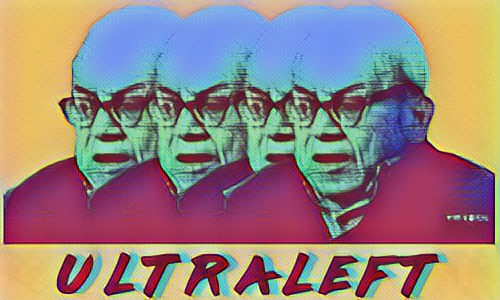Techno-Pragmatism and Anarcho-Communalism
Techno-Pragmatism
Saint-Simon created a political and economic ideology that claimed that the needs of an industrial class, which he also referred to as the working class, needed to be recognized and fulfilled to have an effective society and an efficient economy. Saint-Simon's late-18th century conception of this class included all people engaged in productive work that contributed to society such as businesspeople, managers, scientists and bankers, amongst others.
He advocated a form of technocratic socialism, an arrangement whereby industrial class of scientific merit based experts should advance society. Saint-Simon stressed the need for recognition of the merit of the individual and the need for hierarchy of merit in society and in the economy such as society having hierarchical merit-based organizations of managers and scientists to be the decision-makers in government.
Saint-Simon strongly criticized any expansion of government intervention into the economy beyond ensuring no hindrances to productive work. He emphasized more emphatically that state administration of the economy was generally parasitic and hostile to the needs of production. Saint Simon's conceptual recognition of broad socio-economic contribution, and his Enlightenment valorization of scientific knowledge, soon inspired and influenced utopian socialism.
On the other hand, William James’ pragmatism is a commitment to the idea of cooperative enquiry and experiencing in all areas. This is the ground for its belief in participatory democracy. It rejects rule by “enlightened” experts. The more that the people themselves are directly involved in working together to develop their culture and satisfy their needs, in pooling their experiences, the better they will do. This means a pluralistic openness to the experiences of the marginalized, the outcaste, and the oppressed.
Pragmatism distinguishes between “democracy” as an ideal to be striven for and “democracy” as a label—and not a very accurate one—for the existing state. Similarly there is a distinction between “democracy” as the machinery of a state and “democracy” as a way of life, something which pervades every aspect of a society: its politics, its culture, its religion, its economy, and its relationships.
Anarcho-Communalism
Kropotkin pointed out what he considered to be the fallacies of the economic system of capitalism. He believed it created poverty and artificial scarcity and promote privilege. Instead, he proposed a more decentralized economic system based on mutual aid, mutual support and voluntary association. He argued that the tendencies for this kind of organization already exist, both in evolution and in human society. Kropotkin argued that "it was an evolutionary emphasis on cooperation instead of competition in the Darwinian sense that made for the success of species, including the human.”
A pioneer in the environmental movement, Bookchin formulated and developed the theory of social ecology and urban planning, within anarchist, libertarian socialist, and ecological thought. Bookchin's social ecology proposes ethical principles for replacing a society's propensity for hierarchy and domination with that of democracy and freedom.
Bookchin felt that our environmental predicament is the result of the cancerous logic of capitalism, a system aimed at maximizing profit instead of enriching human lives. The answer then lies in Communalism, a system encompassing a directly democratic political organization anchored in loosely confederated popular assemblies, decentralization of power, absence of domination of any kind, and replacing capitalism with human-centered forms of production.




Comments
Post a Comment